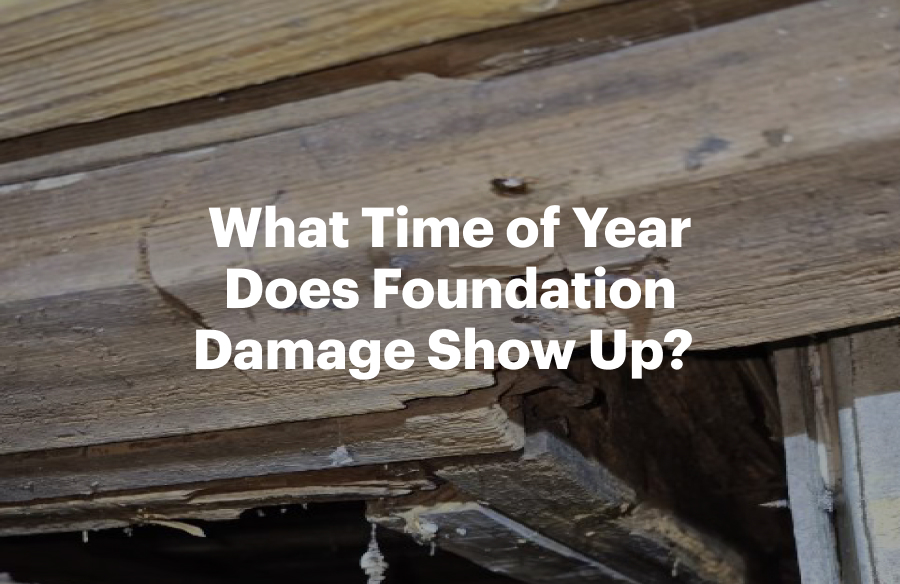Living in the Dallas-Fort Worth area means dealing with challenges when it comes to your home’s foundation. After over three decades in the foundation repair business, we’ve noticed patterns in seasons when homeowners spot foundation damage. In this blog, we’ll discuss the seasonal trends that happen and hope they can help you stay ahead of costly repairs in the future.
Spring Can Season of Surprises For Foundations
Spring is one of the first tests for your foundation after winter. Many homeowners first notice the warning signs that an issue can arise. March through May is usually the slower season for foundation inspection calls. During this time clay soil begins its expansion as temperatures rise and rains arrive. After months of your foundation freezing, the soil around your foundation starts absorbing moisture. This creates uneven pressure against foundation and can reveal small hairline cracks. It’s important to take the right steps to prepare your home for the spring.
Common spring foundation damage include:
- Hairline cracks on walls
- Doors don’t close or open properly
- Small separations around window frames
Summer Time For Home Foundation Damage
Here’s something that surprises many Dallas-Fort Worth residents. Summer actually serves as the precursor for the most foundation damage and the best time to repair your foundation. Problems aren’t noticed until later. Our brutally hot summers, with temperatures regularly hitting 100 degrees and minimal rainfall, create the best conditions for foundation stress.
The heat causes clay soil to shrink dramatically. Its like the soil is pulling away from your foundation. This creates voids and uneven support that can lead to your home settling. However, since the movement is gradual, homeowners rarely connect summer heat to foundation problems.
Fall Serves As A Reality Check
September through November is the peak season for foundation problems. Why? The dramatic change in weather that North Texas is famous for creates rapid soil movement. After months of drought and heat, fall can dump significant rainfall. This sudden moisture causes the expansive clay soil to swell quickly. This puts tremendous pressure on foundations that may have settled during summer. The rapid change often makes existing problems much more noticeable.
Winter Time
Winter is usually the calmest season for foundation issues, because freeze-thaw cycles in our area aren’t as severe as northern climates. The real issue is that winter can hide problems until warmer weather arrives. You will see cold temperatures make the soil contract. This in combination with fall rainfall can temporarily relieve foundation from shifting. This may make you think that some fall shifting went away because of the weather. But sadly the underlying issues may get worse when spring arrives.
The Seasonal Cycle
What makes Dallas-Fort Worth particularly susceptible to home foundation movement is the seasonal variations throughout the year. The cycle starts with expansion, then contraction, and puts constant stress on home foundations. A home may not need repair right away. They might survive several mild cycles before showing damage. But if there are long periods of no rain and suddenly there is a storage, foundation problems can appear “suddenly” after years of no issues.
When to Take Action
The best course of action is to take action as soon as possible. If you first notice foundation issues make sure to get it inspected. Fall is usually when its foundations shift in the Fort-Worth Area. However, don’t wait for the “perfect” season if you’re seeing significant problems already. Foundation issues rarely improve on their own and they get worse with years. Early intervention almost always costs less.
Prevention Is Your Best Defense
The key is staying proactive rather than reactive. Foundation problems in Dallas-Fort Worth aren’t a matter of “if” but “when.” Understanding seasonal patterns gives you a significant advantage in protecting your home’s most important structural element.
Remember, every home’s situation is unique, and what applies generally may not apply specifically to your property. When in doubt, schedule a free evaluation with Maestros Foundation Repair so you can get peace of mind and help you plan for any necessary maintenance or repairs.
